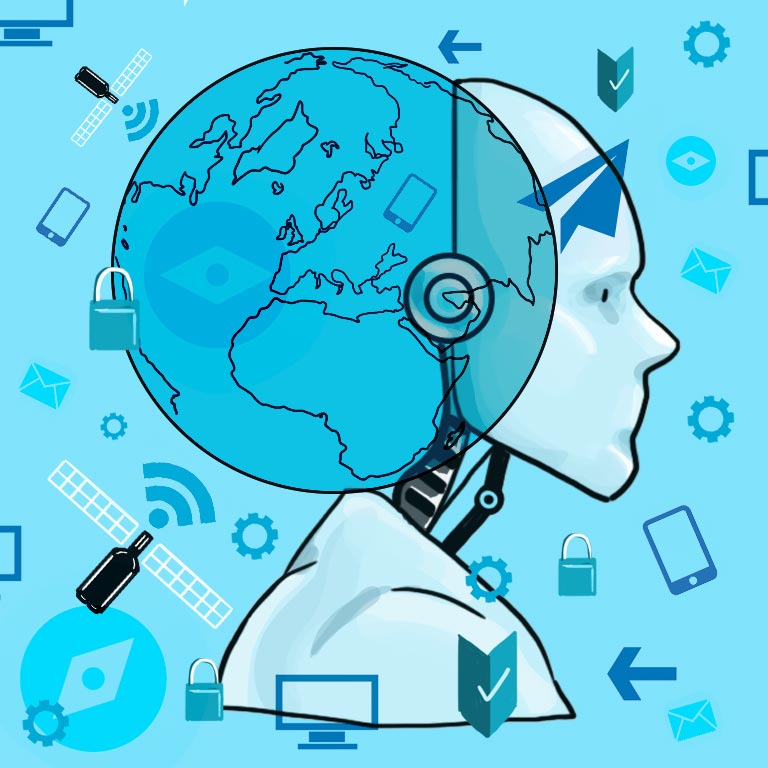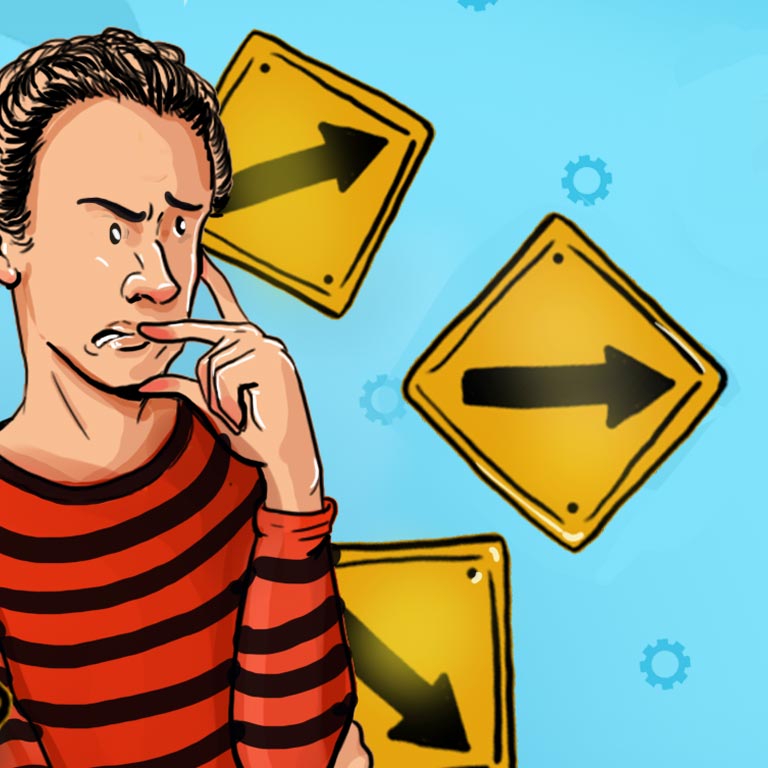
TECHNOLOGY PROGRESS WILL DETERMINE OUR FUTURE
Are you familiar with industrial robots, artificial intelligence, and machine learning?
Well, these are just some of the evidence of Technology development.
What does the future hold in terms of technological progress?
Listen to the Podcast: Talking to experts about the future. Then do the activities below.
Choose the noun that matches with each prediction from the interview.
1. will be more efficient in the future.
2. will be able to supplement their own skills and improve productivity.
3. will learn at different times and different places.
4. will never disappear.
5. will represent a viable alternative to labor.
6. will learn with study tools that adapt to their skills which is called personalized learning.
7. will have a great impact.
8. will provide more opportunities for students to obtain real-world skills.
Read the story and do the activitie below. Choose the best option T (True) or F (False) according to the text.

WAYS TO MAKE BETTER FUTURE PREDICTIONS
By D. Johns. Nov, 19 2021
In every moment of our lives we make many decisions, some of them are conscious and others subconscious. For example, what clothes to wear or if we drink coffee or not in that particular morning. Most of these decisions won’t affect us drastically, but some of them will have a great impact on our future lives; like what major you will choose or if you will declare your love to your crush.
When you choose the best decision from the different options you have, you are trying to predict the future and their consequences because you are evaluating the options by calculating the probability. It means that you think, ‘If I pick X , it will have a consequence A, B, or C.’
When there are different possible consequences, and you’re not sure which one will happen, you experience something called uncertainty. It means that there is from 0% to 100% certainty that certain consequences occur. We experience this feeling of not knowing what will happen every single day, with every decision we make. If you can reduce the amount of uncertainty you feel by trying to predict what will happen in the future, it will be more probable that you make a good decision.
However, researchers found that humans are bad at evaluating probable scenarios and making future predictions. For that reason, Doctor Douglas Hubbard, management consultant and author in decision sciences and actuarial science, suggests putting a percentage on uncertainty to reduce the possibilities that something good or bad will happen. For example, instead of thinking “I think this major will be good for me.” You can change your thoughts like: “I’m 70% confident that this major has many job opportunities for me”.
You also need to calibrate your thoughts. It means, you need to compare what you expected to real consequences. If you predict that something will happen 80% of the time, but it only happens 50% of the time, maybe you are overconfident. Or, if you predict that those events will happen 60% of the time, but they really happened 80% of the time, you are a very anxious person and very unsure to guess the future consequences.
The bad news is that the majority of people can’t find the perfect balance. The good news is that there is special training to learn how to calibrate your predictions.
Another solution to improve estimates or decisions is using a quantitative method. The use of statistical probability models in decision-making today is kind of a new thing, it became popular in the 70’s and 80’s. Staticians, mathematicians, actuarians, economists and analysts are some of the people who follow scientific principles to measure the variables and potential results in a decision and to inform the decision-maker with actionable perspective.
Of course, the average person doesn’t have access to a quantitative model, so just by quantifying the possibilities and calibrating yourself will be enough to avoid catastrophic consequences.
You’ll never be able to be a perfect fortune teller. But, you’ll be better at making predictions than you were before, and you will have better results.
| 1. All the decisions that we make during the day will have important consequences. |
|
| 2. When we choose something, we think that there will be more than one consequence. |
|
| 3. The good or bad consequences of a decision will be 50%. |
|
| 4. Human beings will be better at predicting the future. |
|
| 5. To make a good decision, our friends and relatives can tell us if something will or won’t happen. |
|
| 6. We won’t get better at making predictions, if we don’t adjust our perception. |
|
| 7. If you take a course, you will improve your skills at predicting. |
|
| 8. We will make better decisions if we predict the scenarios by thinking carefully about the percentage of probability of a certain result. |
|
Now that you have done all activities, please reflect about your learning and complete the chart below. In case you are not sure or you think you can’t do it, please click on the links and review the topics.

I am an expert NOW in this topic!

I think I need to practice a bit more.

I am starting to believe I need to start over again.
I understand most of the vocabulary in this material.
I can express predictions using “will” in affirmative, negative and questions.
I can identify other people’s predictions in a text. If I read what they wrote.
I can identify what other people predict about the future if I listen to them.
I can express my predictions in a written form using “will” and “won’t”.
I can express predictions orally.


